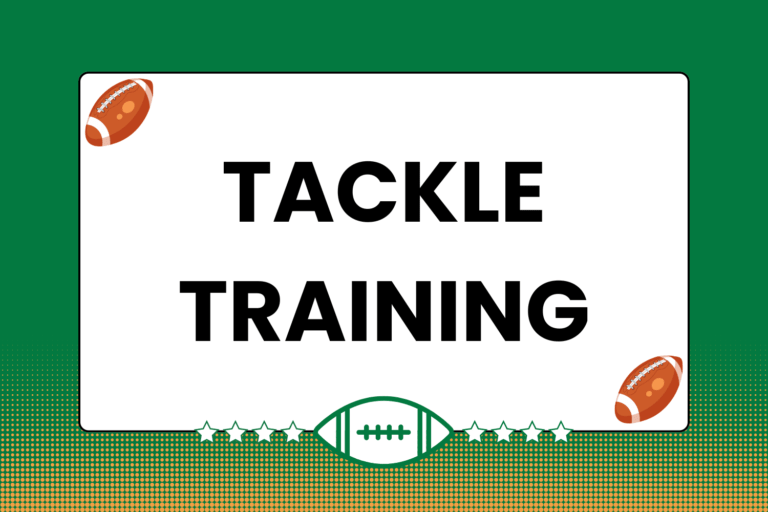To the uninitiated and uninformed, rugby can appear to be several things at once: American football without the pads and frequent stoppages; a sport more concerned with after-party etiquette than the game itself; an athletic competition that’s guaranteed to leave most of the players injured after every match; the sort of sport populated by ex-convicts and deranged mental patients.
While there are only a few shreds of accuracy in these positions, it is true that most people discover and stay with rugby because of the physical nature of the game. This is at least in part because such people see that physicality as what distinguishes rugby from other sports. However, a far more popular theory about why people join a rugby team revolves around the the oft-held (and largely inaccurate) perception that rugby players care more about the social element of the sport than actually playing the game itself. This guide seeks to dispel this and many other myths, and leave you with an authentic depiction of the hooligan’s game played by gentlemen: Rugby.
Rugby is Too Dangerous
There’s a saying that relates to the types of stories that news agencies tend to look for: “If it bleeds, it leads.” The same idea definitely applies in terms of the little tidbits of information that people who don’t know much about rugby use to support their mostly inaccurate opinions about the game.
There are instances of shockingly dirty and dangerous play in the history of literally every team sport, but because one of the few things most people know about rugby deals with the level of physical play, it’s easy for those same people to focus on the rare times where something extreme does happen.
“In my time, I’ve had my knee out, broken my collarbone, had my nose smashed, a rib broken, lost a few teeth, and ricked my back; but as soon as I get a bit of bad luck, I’m going to quit the game.”
J.W. Robinson
Injuries Happen in Every Sport
Yes, rugby is a physical game. Yes, players get hurt. No, players do not get hurt more in rugby than in all other sports, contact or not. There are studies that both agree and disagree with this, but the fact is that there is a risk of injury in any sport, and while the risk of injury in rugby is probably higher than it is in badminton, the sport is not as dangerous as some people like to believe.
All Rugby Players are Violent Thugs
Again, given the many uninformed opinions of the game that exist, it’s easy to equate all rugby players as violent thugs. However, real fans and players alike understand what the game is really like: Two teams who play as hard as they can, then come together at the end to honor and celebrate both the match and the sport itself. That sounds nice, but it doesn’t really explain or illustrate much about the true identity of rugby.
There’s no denying it–dirty play and cheating do take place. It’s true that some of the most memorable pictures taken during rugby matches have happened to catch dirty play of some kind. But for the most part, during most matches, most players play aggressively and cleanly. However, the frequency of dirty play in most matches is far lower than most casual fans think it is.
Physicality is a Part of the Game
Obviously, if one player does something incredibly dangerous or harmful (sucker punching, taunting an injured player, etc.), the other side will likely have something to say about it, but they will almost always let the offending player be disciplined by that player’s team, the game official, and/or the team’s union without exacting revenge. The majority of the time, after the match ends the competitive switch is turned off and two competing teams can come together in recognition of the bond shared by all ruggers. This actually makes for a friendly and respectful environment.
Embracing the physical nature of rugby is a big reason that rugby teammates feel the unique, strong bond with each other. It’s basically an understanding between all members of a team that everyone involved is willing to put their bodies on the line to win the match – be it by getting tackled, tackling a player, running with two opposing players trying to bring you down, trying to tackle a much bigger opposing player, etc. There is also determination to not be the one player who doesn’t meet that standard. Everyone competes as best they can for everyone else; knowing that you played as hard as you can for your teammates, and in turn, knowing that your teammates played as hard as they can for you, is arguably more important than the outcome of the match.
“The whole point of rugby is that it is, first and foremost, a state of mind, a spirit.”
Jean-Pierre Rives
Club and International French Rugby Player
Partying Trumps Playing
There’s an unfortunate stigma attached to the game of rugby, and a similar stereotype that gets applied to its players. Put bluntly, it goes something like this: A rugby match is just an excuse for 30 guys to beat on each other for 80 minutes, then get black-out drunk afterwards. It’s unfortunate for two reasons: One, it’s occasionally (and only occasionally) true; two, it completely overshadows the communal aspect of the game.
- It’s true that part of the unique identity of rugby comes from the mutual sense of camaraderie and respect between two clubs, as shown by the fact that two teams that just played a very physical match can go hang out afterwards with no hostility or bad blood between them
- Socializing after a match is a traditional and important part of rugby’s culture, but not more important than the match itself. Without the match, there would be no post-match socializing.
A perfect demonstration of that mutual respect comes in the common practice of an after-match social activity involving all players from both teams.
An Identity Built out of Community
In some people’s eyes, the reason that rugby is synonymous with partying is because of the tradition of the home team providing hospitality to the visiting team(s) after a match or tournament. The home team will have organized some kind of get-together after the match, one in which both teams will hang out and socialize.
- It’s not unusual for this kind of activity to take place at a bar or restaurant in which the home team frequents.
- Many rugby teams are sponsored by those kinds of businesses, and feel obligated to bring their sponsors some business when they can, which also plays into the (inaccurate) perception that rugby players just want to drink and party.
This hospitality extends further than a post-match gathering. Especially among college teams, the home team will often provide sleeping accommodations for the visiting team(s), usually by letting the players of other teams crash at the houses of the home team’s players. Someone wanting to make similar claims about other sports would be hard pressed to find evidence that their sport would provide the same level of hospitality as rugby.
It is this bond/respect between players that forms the core of rugby’s cultural identity. It is also what distinguishes it from other team sports. That’s not to say that participants of other sports don’t feel a similar camaraderie, but the extent to which rugby is characterized by this relationship is much greater than other sports. The actions that result from this mutual respect – the post-match gathering, for example – are part of how rugby’s true identity distinguishes it from other team sports.
The Essence of the Game
Rugby culture is created out of two different, but connected, parts: The sense of brotherhood (or sisterhood) and camaraderie shared between players in a club; and the mutual respect between all clubs, which comes from their collective respect for the game. It’s widely accepted among rugby players that the uniquely strong bond between teammates in a rugby club is present in most teams, and from this understanding a mutual respect between all rugby players is formed.
In reality, part of what draws people to the game – players and fans alike – is the cultural core of rugby. It features a noble and honorable combination of camaraderie, loyalty and respect that’s not found in other sports. Fans know it to be unique to the sport of rugby; players recognize it as something that, compared to other athletes, makes them a cut above the rest. And when uninformed people come to see rugby for what it really is, they’re often surprised and humbled.





